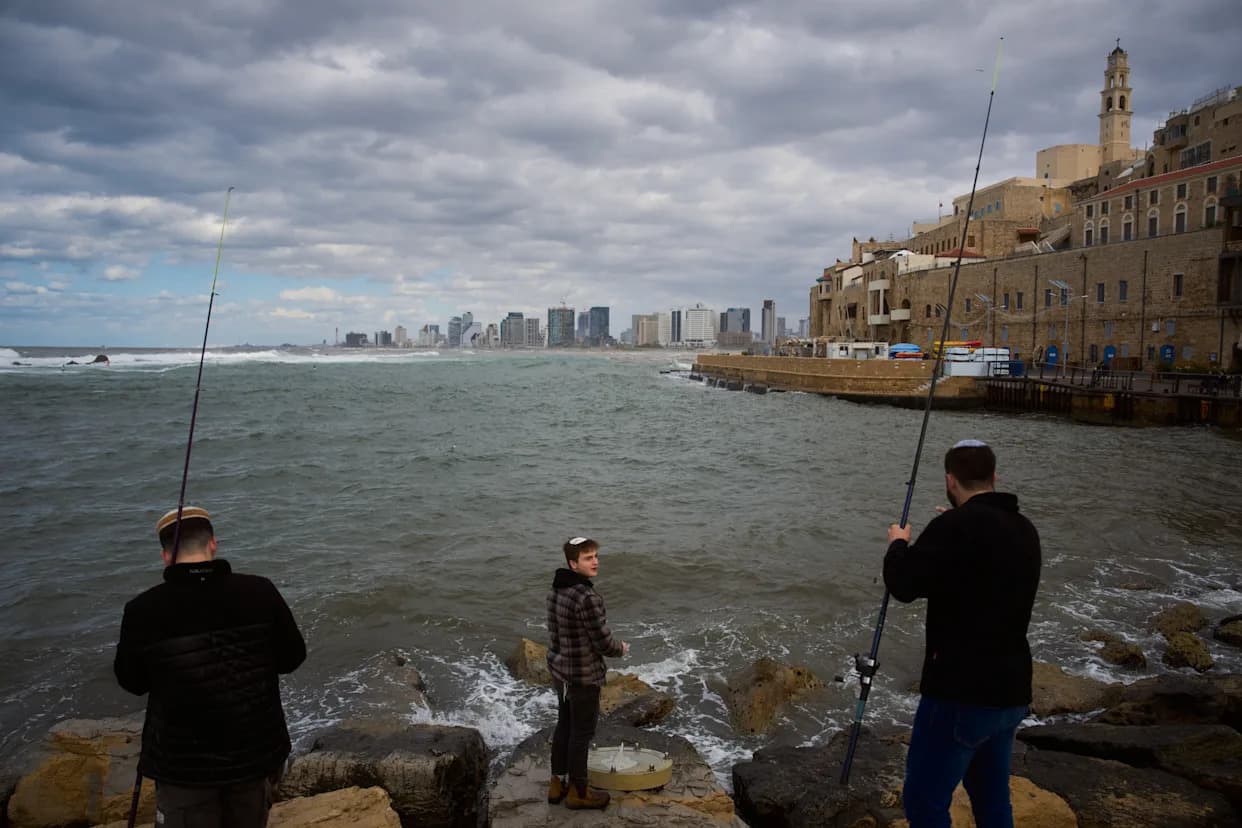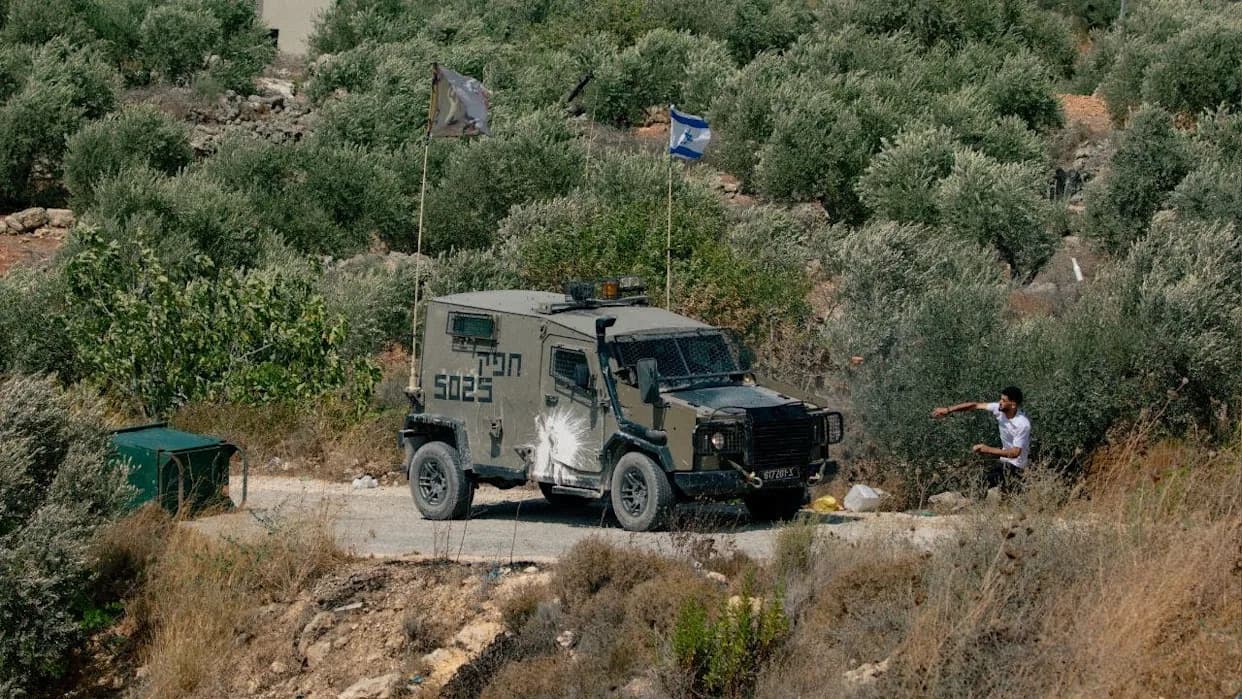Thousands of Haredim blocked a major Jerusalem interchange to oppose moves to end their longstanding exemption from military service, arguing prayer and Torah study protect Israel. The IDF, fatigued after two years of war in Gaza, faces an estimated shortfall of about 12,000 full-time soldiers, and the Supreme Court has ruled the blanket exemption unlawful. Lawmakers are debating sanctions for draft refusers while political dependence on the ultra-Orthodox bloc complicates reform. Some within the community support tailored military units; the dispute raises wider questions about national service, identity and who bears Israel’s defence burdens.
‘Prayer Protects Us’: Massive Haredi Protest Blocks Jerusalem as Conscription Rift Deepens

Mass demonstration in Jerusalem highlights clash over military service
At a six-lane interchange on the main approach to Jerusalem, an estimated 200,000 ultra-Orthodox Jews — known as the Haredim — gathered to pray and to protest proposed measures to end their long-standing exemption from Israel’s mandatory military service. The demonstrators said they protect the nation through prayer and Torah study, not by joining what many regard as a secular army.
The scene was chaotic. Worshippers climbed onto petrol-station roofs and stood on a motorway gantry, obscuring signs to Tel Aviv with banners. Police, heavily armed, largely abandoned efforts to block access to the Chords railway bridge. Coils of razor wire were swept aside as protesters swarmed public infrastructure. A tragic incident during the unrest resulted in the death of a young man who fell from a building.
Protesters voiced deep opposition to conscription. One young man, identified as Chaim, told the crowd his family had studied Torah for generations and he would not be drafted: “Now they want to call me into the army? It’s not happening. I’m going to continue studying Torah.” Others raised prayer books beneath the blast of a ram’s horn, insisting that prayer and religious life are Israel’s true protection.
Historical exemptions and demographic pressures
Since Israel’s founding, many Haredi men were exempted from compulsory service to enable full-time Torah study in yeshivas, supported by state subsidies. In 1948 the Haredi community comprised roughly 3% of the population; today it is about 14% of Israelis and nearly one in five of Israel’s Jewish population, driven by high birth rates. The Israel Democracy Institute estimated a live birth rate of 6.4 per Haredi woman in 2020–22 compared with around 2.5 among Jewish women in Israel more broadly.
After two years of war in Gaza the Israel Defence Forces (IDF) face severe strain. Officials say the military is short by roughly 12,000 full-time soldiers in the immediate term, prompting many political and military leaders to argue the historic exemption must end to meet security needs.
Politics, courts and contested reforms
In June last year the Supreme Court ruled that the blanket exemption was unlawful. In theory, men who refuse conscription can now face imprisonment, though this sanction has not been widely enforced. The Knesset is debating a new legislative package that would include fines and other penalties such as travel restrictions and limits on obtaining driving licences for draft refusers. Critics say some lawmakers watered down proposed measures under pressure from Prime Minister Benjamin Netanyahu, who depends on the ultra-Orthodox bloc for crucial coalition seats, leaving the bill’s fate uncertain.
Opposition Knesset member Moshe Tur-Paz (Yesh Atid) — a paratrooper and member of the foreign and defence committee — framed the shortage in stark terms, telling reporters that Israel needs “tens of battalions more” and estimating there are some 100,000 Haredi men aged 18–37 who have never served. He argued that even partial Haredi enlistment would materially ease manpower shortages.
Culture clash and social concerns
Many in the Haredi community say their way of life is incompatible with military service. They fear that enlistment will erode religious observance; as one young man put it, he prays or studies Torah for nearly eight hours a day and worries that service would make him “come out secular.” Families point to cases in which ultra-Orthodox recruits in tailored units became less observant after service.
At the same time, some Haredim support a path into the IDF on adapted terms. Rabbi Yehoshua Pfeffer, chairman of the Netzach Yehuda Association, has promoted specially tailored units that allow strict religious practice during service. He argues that financial incentives and structured integration will be more effective than threats of imprisonment, and that the IDF has become more accommodating to religious life in recent years.
Wider implications
Secular commentators frame the dispute as a defining question for Israel’s future: whether the nation will preserve the founding ideal of shared service binding citizens across social and religious lines, or accept a permanent division of burdens. Veteran journalist Ari Shavit warned that failure to integrate the Haredi population into national service could lead to severe social and political strain. Others argue that as the Haredi community grows, so must its civic responsibilities.
The protest in Jerusalem illustrated how fraught that transition will be. The clash brings together questions of religion, identity, social welfare and security at a politically volatile moment — and with national elections required by October 2026, the debate is likely to shape Israel’s domestic politics for years to come.
Key figures: estimated 200,000 protesters; IDF short by ~12,000 full-time soldiers; 2,940 Haredi men drafted in 2024 (1,300 via ultra-Orthodox schemes).
Help us improve.




























